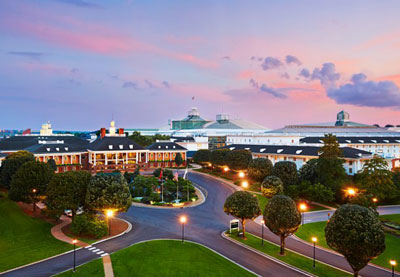This post may contain affiliate links. We may earn money or products from the highlighted keywords or companies or banners mentioned in this post.
January 29, 2015
 In an enforcement advisory Tuesday, the FCC said its enforcement bureau has witnessed a “disturbing trend” in which hotels and other commercial establishments block wireless consumers from using personal Wi-Fi hot spots on their premises. It said it would be aggressive in investigating and acting against any blocking.
In an enforcement advisory Tuesday, the FCC said its enforcement bureau has witnessed a “disturbing trend” in which hotels and other commercial establishments block wireless consumers from using personal Wi-Fi hot spots on their premises. It said it would be aggressive in investigating and acting against any blocking.
FCC officials already have cracked down on Marriott International, following an incident in which the hotel chain blocked people from using personal hot spots at Nashville's Gaylord Opryland Hotel & Convention Center. Marriott agreed to settle the matter by paying a $600,000 civil penalty.
Marriott and a hotel industry group, the American Hotel & Lodging Assn., petitioned the FCC to change its policy. But the agency made clear Tuesday that it views any Wi-Fi blocking as unlawful intentional interference with the public's right to use the airwaves.
“Consumers must get what they pay for,” said Tom Wheeler, the FCC's chairman. “The Communications Act prohibits anyone from willfully or maliciously interfering with authorized radio communications, including Wi-Fi. Marriott's request seeking the FCC's blessing to block guests' use of non-Marriott networks is contrary to this basic principle,” he said.
A Marriott spokesman referred Tuesday to a statement the company issued in January that it won't block guests from using personal Wi-Fi devices. “Marriott remains committed to protecting the security of Wi-Fi access in meeting and conference areas at our hotels. We will continue to look to the FCC to clarify appropriate security measures network operators can take to protect customer data, and will continue to work with the industry and others to find appropriate market solutions that do not involve the blocking of Wi-Fi devices,” the company said.
Many hotel and convention-center operators have tried to profit by offering Wi-Fi as a paid service. At the same time, many consumers now carry cellular devices or smartphones that can connect to surrounding devices using Wi-Fi, funneling data traffic to and from the Internet without assistance from fixed, commercial Wi-Fi access points.
In their FCC petition, Marriott and the hotel group said blocking consumers' Wi-Fi hot spots was necessary to protect the reliability of their own networks.
Some other companies, such as Microsoft Corp. and Google, rejected that argument and weighed in favor of FCC's policy against blocking. Removing protection against such interference “would do harm to consumer welfare and the public interest,” Microsoft said in a filing with the agency.
Google said that the FCC's policies against blocking “manifestly serve the public interest.”
What do you think of this $type?











